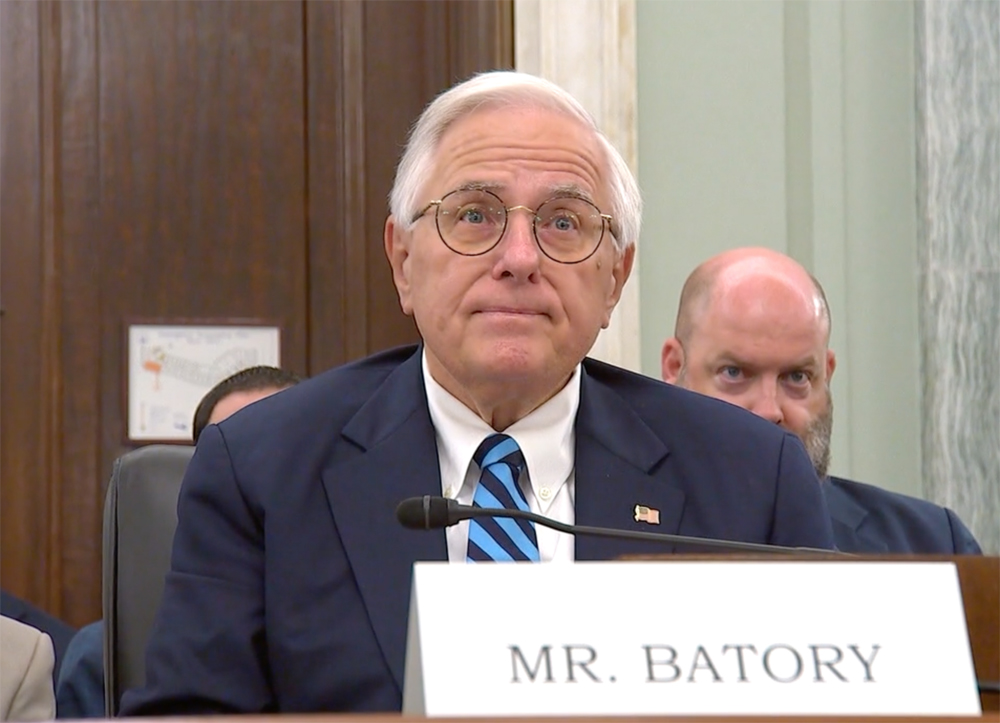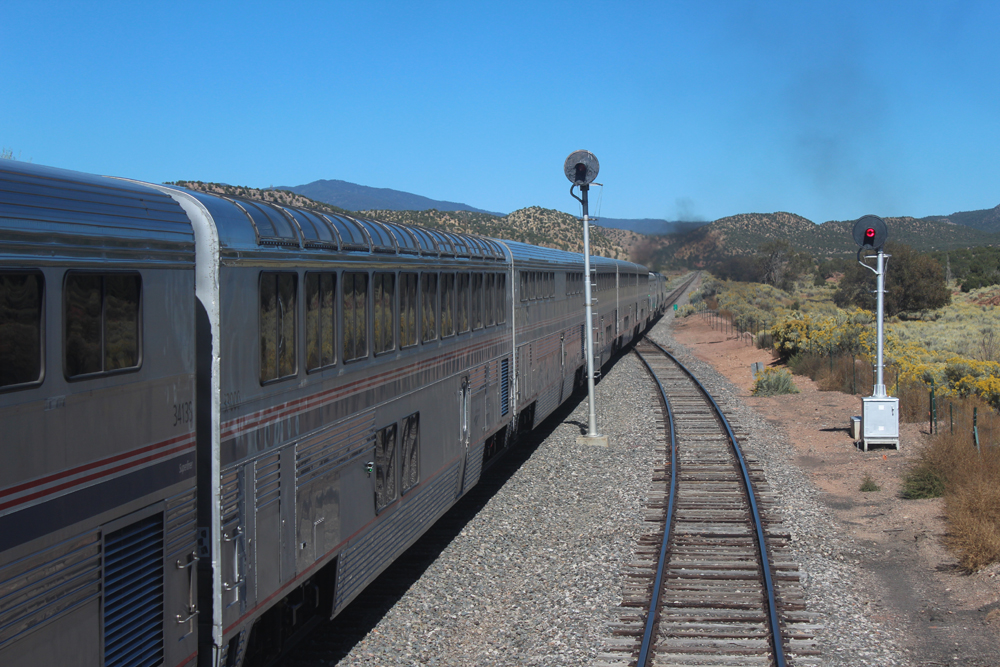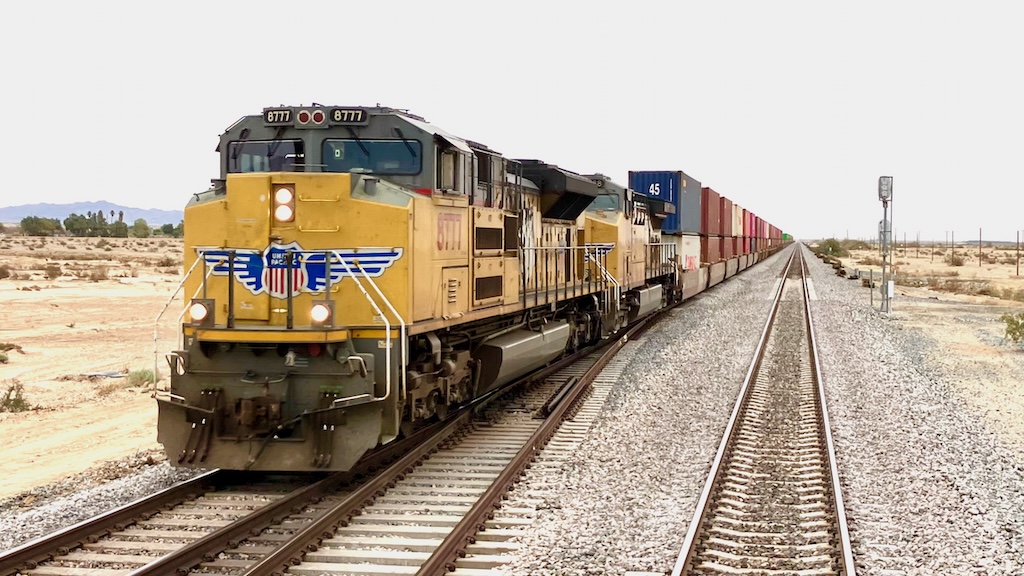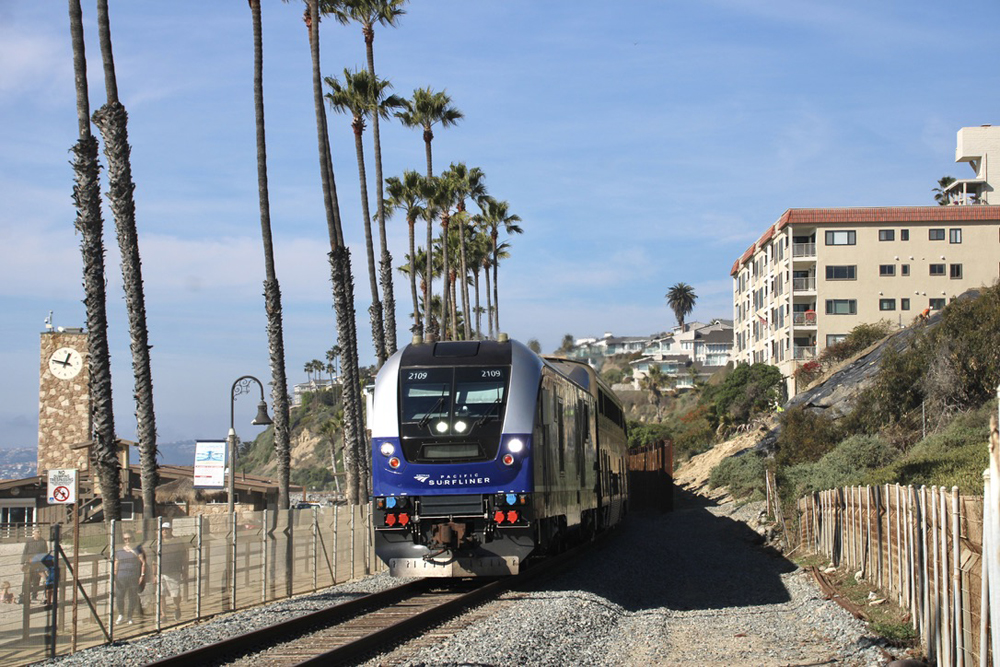
WASHINGTON — As is usually the case with hearings held by U.S. Senate and House committees responsible for Amtrak, the most revealing part of the event usually comes in the witness question-and-answer session well after opening statements. Yesterday’s Senate Commerce Committee cross examination of four prospective Amtrak Board of Directors nominees was no exception. [Near the end of the 1 hour 47 minute hearing, viewable on the committee’s website along with opening statements, the video begins 33 minutes in.]
U.S. Sen. Ben Ry Lujan (D-New Mexico) asked nominee Ron Batory to explain his role in Amtrak management’s 2018 attempt to convert the middle of the Southwest Chief route to busses between Dodge City, Kan., and Albuquerque, N.M. At the time, Batory was Federal Railroad Administration Administrator under then-President Donald Trump after serving as president of the Belt Railway of Chicago and Conrail Shared Assets.
“I’m proud to share with you that there was a gulf between myself and [Amtrak] President [Richard] Anderson regarding the Southwest Chief,” Batory responded. “I took a personal interest in it.”
He added, “First we were using the absence of positive train control as the reason [for a bus bridge] and then we were talking about the physical plant conditions. I reached out to BNSF Railway and hi-railed the railroad from Lamy, N.M., to Trinidad, Colo., and realized the physical plant was adequate for the class of track it was maintained for. There was a lot of subterfuge, if you will, in trying to degrade the Southwest Chief. I’m pleased to share with you, it never happened,” Batory concluded.
Board support for long-distance and state-financed trains also dominated questions to the other nominees, all Democrats.
Elaine Clegg, CEO of Boise, Idaho’s, Valley Regional Transit, didn’t hide her interest in the need for rural connectivity. “One of my long-standing goals has been to bring Amtrak service back to the Northwest,” Clegg said in her written statement. Of all the candidates, she exhibited the most knowledge about the FRA’s Corridor ID and Long-distance route study initiatives, as well as routes currently and formerly operated by Amtrak.
David Capozzi, who served with various organizations advocating for accessibility for people with disabilities, promised to support stepped-up efforts to bring Amtrak stations into compliance with provisions of the Americans with Disabilities Act. “Of particular importance,” he suggests, “is ensuring that new long-distance equipment Amtrak plans to order within the next year meets or exceeds the requirements of the ADA.” He appeared to be the most familiar with legislation affecting Amtrak, including the bipartisan “Baby Changing on Board Act,” that would require trains to have a baby-changing table in every accessible restroom.
Though admitting he had no railroad experience, nominee Samuel Lathem, referred to his leadership as a Delaware River Bay Authority commissioner and labor union official with the United Auto Workers in “seeking compromises that produce a win-win for both sides.” Most of his answers to questioning were perfunctory.
Hearing participants were asked by Sen. Deb Fischer (R-Nebraska) if they would confirm their support for the Amtrak Accountability and Transparency Act, which attempts to shed light on Amtrak management bonuses. Clegg told Fischer she would investigate exactly what outcomes were incentivized.
Though completely unrelated to the hearing’s topic, Sen. Ed Markey (D-Mass.) asked Batory if he thought more than one crew member could handle a 2-mile long freight train. The former FRA Administrator replied, “I do not believe there is a uniform crew size that fits the [entire U.S. rail network]” but he found the Railway Labor Act “was a very effective tool in negotiating working conditions, benefits and compensation during my 46-year railway career.”
All of the candidates must now be confirmed by a full Senate vote. Not included in the hearing was a nominee advanced only two days earlier, Lanhee J. Chen, Ph D, a Republican from California who currently is a policy expert at the Hoover Institution and lecturer at Stanford University’s Law School. If Chen and the current nominees are confirmed, that would fill all Amtrak Board of Directors vacancies.















Assuming the quote by Batory is not out of context, I’m not impressed by it. He should have stated that Amtrak was being disingenuous in claiming that lack of PTC was why Amtrak proposed a bus bridge for the Southwest Chief because other routes are used by passenger trains without PTC, and they’re evidently not an issue. On the other hand, when he stated he, “realized the physical plant was adequate for the class of track it was maintained for,” he didn’t really get that one right. The main track might be Class 4, but sidings have deteriorated and numerous auxiliary tracks have been taken out of service, creating a situation (as noted by Bob Johnston in a recent article about late Amtrak trains in TRAINS) where opposing Southwest Chief trains are substantially delayed because available siding locations are minimal. And by not mentioning that maintaining 270 miles of mountain railroad for two trains a day is a money pit, he let Amtrak off the hook for likely the REAL reason they wanted the bustitution: To discontinue the train so they wouldn’t have to spend millions each year just to keep the route open. As a result of this ongoing deterioration, Amtrak showed the Southwest Chief “losing” (according to Amtrak accounting) nearly $82 million, the most of any long distance train (and half again as much as the Empire Builder with more route miles). So, contrary to Batory’s quote as indicated in this article, he didn’t really fix anything, at least on a root-cause level.
Approving Ron Batory is a no brainer. He’s the most qualified of the entire batch of nominees. More qualified than some of the sitting members.
Apparently missing from the hearing were questions about the effectiveness of AMTRAK’s management, particularly crew and equipment shortages, route management, train cancellations, and endemic failures of new equipment.
Agree. As well the equipment parking of mainly LD train equipment. The inability to have operative locos at SEA, EMY LAX, CHI, & WASH. The need to have 80% of equipment that can operate every day.
I don’t get how folks with no rail (passenger or otherwise) can be put forward by this administration to manage a government agency that actually requires management. Amtrak CEO’s (except for a few like David Gunn) have shown no acumen for running this agency outside of the Northeast Corridor. They have chosen to steal (my word, I am sure not theirs) from the Long Distance trains upon which Amtrak was chartered to subsidize the NEC through “fuzzy” and downright unknown accounting practices. Samuel Lathem admitted he has no railroad experience so how can he be qualified to give any latent information or support to the running of this agency? Looks more like it was a handout from his Delaware buddy, Joe Biden. And Dr Chen may be a gifted policy expert but of what? Transportation Administration, Infrastructure planning, what? He has not been vetted by anyone with a knowledge of the needs of Amtrak. He may prove to be fine but his candidacy should have been forwarded long before now. Its just such a nonsensical way to “run a railroad” in an age when major decisions will need to be made. The first one, in my opinion, should be the total separation of long distance trains from managers of commuter operation, mainly the NEC. Long Distance Trains will never get the support they need as long as the NEC has ANY say in how their finances and those of the NEC are intertwined.
“Looks more like it was a handout from his Delaware buddy, Joe Biden. And Dr Chen may be a gifted policy expert but of what? Transportation Administration, Infrastructure planning, what? He has not been vetted by anyone with a knowledge of the needs of Amtrak.” in your words.
Why not complain about Chen being advanced by a Republican at the last minute, could this be a nomination from one of his GOP friends. Could he be a plant to help Amtrak fail. Time will tell and I do agree if nominees have zero railroad experience then they shouldn’t be on the Board. Yet if you’re going to guess if it was political then guess for all sides.